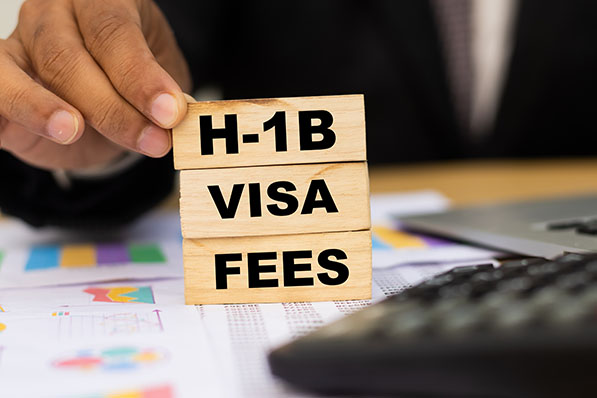Two lawsuits were recently filed challenging the new $100,000 fee for H-1B visa petitions.
As previously reported, on September 19, 2025, President Trump issued a proclamation that created a new $100,000 fee for H-1B visa petitions. Shortly after the proclamation was issued, various government agencies issued guidance on how the proclamation will be implemented, including a memorandum and an H1-B FAQ from the U.S. Citizenship and Immigration Services (USCIS), a memorandum from the U.S. Customs and Border Protection and a H-1B FAQ from the U.S. Department of State.
Now, various organizations and individuals have filed lawsuits in two courts, both of which allege that the proclamation and the agency action implementing the proclamation are unlawful and should be set aside.
Global Nurse Force Case
On October 3, 2025, the first lawsuit, Global Nurse Force, et al v. Donald J. Trump, et al, was filed by a group of plaintiffs that include a healthcare staffing company, labor unions, a non-profit association and union of faculty and academic professionals, a non-profit organization providing operational and educational support services to public charter schools, various religious organizations, and individuals — all alleging they will be directly harmed by the new H-1B visa fee.
This lawsuit, which was filed in the U.S. District Court for the Northern District of California, alleges that the President exceeded his authority, including under the Immigration and Nationality Act (INA), in issuing the proclamation and creating the new H-1B fee. It also alleges that the USCIS, the U.S. Customs and Border Protection and the U.S. Department of State, as well as the heads of each of those agencies, in implementing the new H-1B fee, exceeded their authority under the Administrative Procedure Act (APA) and did not follow the required rule-making process.
This lawsuit requests that the court:
- Declare portions of the proclamation unlawful and set them aside.
- Declare unlawful the agencies’ guidance, enforcement and implementation of those portions of the proclamation and set them aside.
- Enjoin the agencies from requiring the H-1B fee.
- Order the agencies to process H-1B petitions under existing law.
U.S. Chamber of Commerce Case
On October 16, 2025, the U.S. Chamber of Commerce also challenged the proclamation in a lawsuit filed in the U.S. District Court for the District of Columbia. That lawsuit, Chamber of Commerce of the United States of America v. U.S. Department of Homeland Security, was filed against the Department of Homeland Security and the Department of State, as well as Kristi Noem and Marco Rubio, in their official capacity as heads of those agencies.
This lawsuit alleges that the proclamation is unlawful because it overrides provisions of the INA that govern the H-1B program, including requirements on how fees are imposed. It also alleges that agency action implementing the proclamation was unlawful under the APA.
Through the lawsuit, the U.S. Chamber seeks:
- A declaration that the proclamation and implementing agency action exceed the executive branch’s lawful authority;
- An order enjoining the defendants from implementing, enforcing or otherwise carrying out the provisions of the proclamation; and
- An order vacating and setting aside any agency actions taken to implement the proclamation.
Employers utilizing H-1B visas should closely monitor the status of these legal challenges and consult legal counsel with any questions.
Erika Barbara, Senior Employment Law Counsel, CalChamber
CalChamber members can read about the H-1B visa in the HR Library. Not a member? See how CalChamber can help you.
